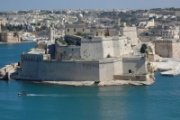Malta votes to allow divorce

History was made in Malta on Saturday when just over half the voters in a referendum (54%) backed a call to allow couples to divorce after at least four years of separation; when 'there is no reasonable hope' of reconciliation; adequate maintenance is guaranteed; and children are protected.
Prime Minister Lawrence Gonzi, who campaigned for a 'No' vote, said: "The referendum outcome is not the one I wished for, but the will of the majority will be respected and parliament will enact legislation for the introduction of divorce."
The Catholic Church did not campaign over the issue before the referendum, but the Archbishop of Malta, Mgr Paul Cremona warned in a letter that voters faced a choice between "building and destroying family values".
Marthese Borg, vice-president of the Cana movement, a Catholic organisation which runs marriage preparation classes said she was sad about the referendum result. She said: "I really believe that divorce is not the solution and that the country is not going to gain anything. But there's no use crying over spilt milk. Now Cana, the Church and the government have all got to work harder to build stronger marriages. The Church especially - it does already reach out to people, but it has to do this even more in future."
Mrs Borg said she hoped that any legislation passed in Malta would not allow 'no fault' divorces, a type which is easier to agree because neither party is blamed.
Currently, married couples can apply for a legal separation through the courts, or seek a church annulment - a complex process that can take up to eight years.
Reformers argued that with 30 per cent of marriages failing, the ban on divorce was causing unnecessary suffering by preventing separated couples from moving on and marrying new partners. Nearly one-third of children are born to single mothers in Malta.
The leader of the 'Yes' movement, Jeffrey Pullicino Orlando, an MP with the ruling Nationalist party, said the vote "brings Malta into a new era where the state and the church are separate."
Malta is the last European country to ban divorce. Apart from a brief period when the island fell under Napoleon's rule for about two years, divorce has never existed legally there. Divorce became legal in the Republic of Ireland in 1995. It is still banned in the Philippines.


















